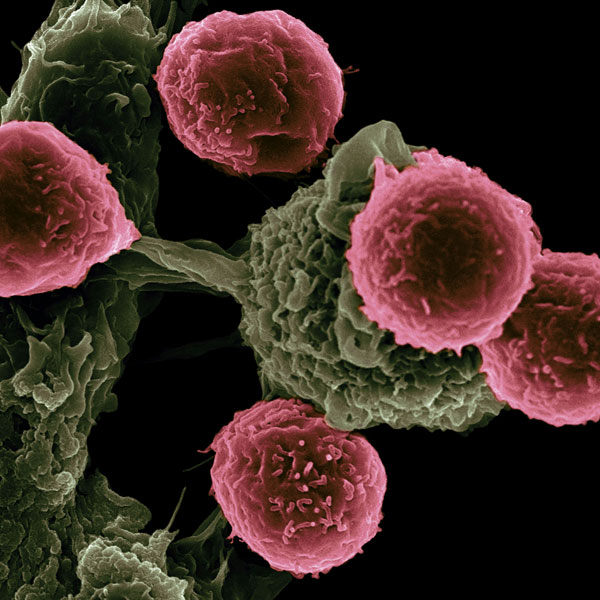Dostarlimab opens a new era in cancer treatment without surgery

[Cancer cells. Photo Credit to Unsplash]
A groundbreaking clinical study has revealed that the immunotherapy drug dostarlimab can lead to complete tumor remission in patients with early-stage mismatch repair deficient rectal cancer, eliminating the need for surgery or radiation therapy.
The study, published in April 2025 in The New England Journal of Medicine, has captured the attention of cancer experts worldwide.
For decades, traditional cancer treatments have primarily relied on surgery, radiation, and chemotherapy, but these methods often come with severe side effects and a high risk of recurrence.
In recent years, targeted therapies that focus on the molecular characteristics of cancer cells and immunotherapies that enhance the cancer-fighting abilities of immune cells have emerged as promising alternatives.
Dostarlimab is one of these immunotherapies, known as a PD-1 inhibitor, and it has shown exceptional effectiveness in cancers with mismatch repair deficiency.
This genetic condition affects the body’s ability to repair DNA damage and is found in approximately 10-15% of colorectal cancers.
In a phase two clinical trial conducted at multiple centers, 103 patients with early-stage mismatch repair deficient tumors, including rectal and other solid cancers, completed treatment.
The results were unbelievable: all 49 patients with early stage mismatch repair deficient rectal cancer achieved a clinical complete response after receiving dostarlimab, meaning that the cancer could no longer be detected.
This outcome was confirmed through imaging scans and physical examinations, showing that the tumors had completely disappeared without the need for surgery or radiation.
Among the 54 patients with other types of mismatch repair deficient solid tumors, 35 patients also achieved a complete response, highlighting the broader potential of dostarlimab across different cancers.
Perhaps most importantly, at the two-year follow up, 92 percent of those who had achieved remission remained cancer-free, demonstrating the durability of dostarlimab’s therapeutic effect.
The treatment allowed patients to avoid the long-term complications commonly associated with traditional cancer treatments, which often impair bowel, bladder, and sexual function.
Furthermore, the side effects reported during the trial were mild and manageable.
Patients typically experienced minor symptoms such as skin rashes, fatigue, and occasional thyroid function changes.
“For as long as cancer treatment has existed, cutting it out has been the best way to cure it, but this is a complete paradigm shift,” said Dr. Luis Diaz, a gastrointestinal oncologist at Memorial Sloan Kettering Cancer Center in New York and one of the study’s lead investigators.
The study’s high response rates in multiple tumor types suggest that this non-surgical immunotherapy strategy may be viable for a wide range of mismatch repair-deficient cancers.
These include cancers of the gastrointestinal tract, uterus, and potentially others currently being explored.
GlaxoSmithKline (GSK), the developer of dostarlimab, is actively pursuing additional clinical trials and expanding the potential uses of the drug.
Several other pharmaceutical companies are also racing to develop similar immunotherapies based on these encouraging results.
Dostarlimab is fundamentally reshaping the landscape of cancer therapy as it moves away from removing tumors through surgery and instead empowers the immune system to eliminate them.
This development opens the door to a future where many cancer patients may receive treatment without facing the physical and emotional toll of surgery.

- Esther Kim / Grade 10 Session 9
- Lexington High School

![THE HERALD STUDENT REPORTERS [US]](/assets/images/logo_student_us.png)
![THE HERALD STUDENT REPORTERS [Canada]](/assets/images/logo_student_ca.png)
